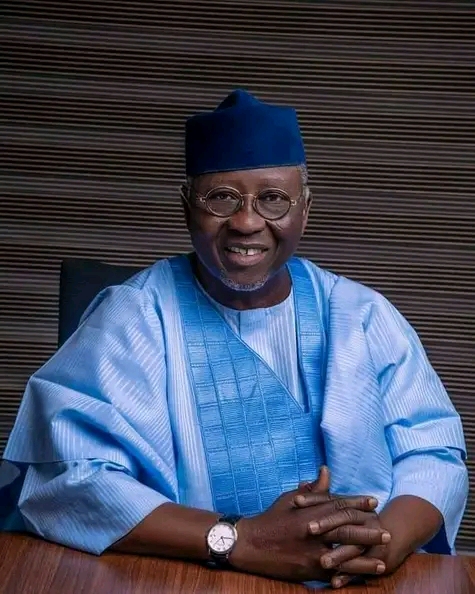Security is the underlying basis of statehood. Where security is compromised, the state is in anarchy, and where that happens, the sanctity of the State lays in peril. In Nigeria, like any other political community around the world, the bulk of the responsibility of maintaining internal law and order rests squarely with the Nigeria Police Force (NPF).
The United Nations recommends one police officer for every 450 citizens. Subsequent Nigerian governments have agreed that the country is grossly under policed; hence, the need to do more in the area of recruitment of more hands. The immediate past administration of Muhammadu Buhari took the bull by the horn with the recruitment of thousands into the Force. This is not yet uhuru because evidence from advanced economies, like the United States, United Kingdom and Russia shows that policing in Nigeria is still a far cry.
However, with the establishment of an executive body under section 153 of the Constitution of the Federal Republic of Nigeria 1999, and the Police Service Commission (Establishment) Act 2001, the Nigeria Police has continued to witness a paradigm shift.
For the benefit of hindsight, the PSC is the civilian oversight body with the power to appoint, promote, discipline and dismiss all officers of the Nigeria Police Force (NPF) except the Inspector-General of Police (IGP). The foregoing explanation is necessary because most Nigerians seem to be confused about the functions and existence of the PSC.
The objectives of the commission are to make the relationship between the public and the police one of trust and confidence instead of suspicion and indifference. The commission recognises the public as essential to ensuring an effective police. The commission has a charter, which is addressed to the Nigeria police, civil servants, NGOs, security agencies and the general public. Members of the public may challenge or commend the activities of the police through the Public Access Procedures/Grievance Redress Mechanism.
All these beautiful provisions notwithstanding, the relationship between the public and police is still standing on one leg, more so that the NPF and PSC are not able to strike a balance in their relationship. The reason most opinion leaders adduce is that despite the enabling laws that established the PSC, good laws don’t drive themselves. It needs courageous, charismatic and competent hands for sound implementation. There’s important need for President Ahmed Tinubu and the Arase-led PSC to develop a new police infrastructure as recipe for success.
That is why the appointment and subsequent swearing-in of the former Inspector-General of Police, Solomon Ehigiator Arase, is a good idea, whose time has come. Arase, a gentleman and terrific retired police officer, is mounting the saddle at a time the institution is grappling with increasing hydra-headed challenges. The need to intensify efforts towards building a Nigeria Police that commands the respect of Nigerians is more pertinent now under the Tinubu administration than ever.
Arase has an enormous task ahead of him. No one will envy Arase in this onerous task that lies ahead of him. But the good news is that he has worn the shoe before, so he knows exactly where it pinches. For Arase, the chairman of PSC is one appointment well deserved. As a matter of fact, some have described his appointment as a round peg in a round hole.
In this multifaceted effort at reforming the efficiency of the Nigeria Police, synergy is key. For instance, Section 27 of the 1999 Constitution says “The Nigeria Police Council shall comprise the following members – (a) the President who shall be the Chairman; (b) the Governor of each State of the Federation; (c) the Chairman of the Police Service Commission; and (d) the Inspector-General of Police”.
These critical stakeholders must be factored in by Arase to guarantee success. The onus is also on the Tinubu administration to give maximum support to the Arase-led PSC to ensure synergy among stakeholders. The call for synergy is crucial because, today, some security services are polarised along ethnic lines, hence the call for unity and peace.
In these efforts, global collaboration is key because it can provide start-ups with access to international police service, talent and resources. The new system should actively facilitate partnership among the PSC, Police and the foreign Interpol. This step will encourage knowledge exchange and cross collaboration initiative for securing Nigeria.
Against the background of his antecedents, Arase is capable. As his tradition is not to mark time or give excuses, Arase, upon his swearing in by former President Muhammadu Buhari, hit the ground running with a series of press conferences where he reeled out his programmes before Nigerians, while seeking for their cooperation. To demonstrate his preparedness for the task ahead, Arase reached out to the media to team up with him as partners in progress.
Arase promised to promote cordial relationship between the Nigeria Police and the PSC. He has also promised a paradigm shift. This lofty agenda cannot be achieved without holistic security sector reforms.
All these reassuring changes of direction, coming at a time of heightened mistrust and increasing cases of police brutality of the citizens they’re meant to defend is, to say the least, a soothing relief. However, neither the PSC nor the Nigeria Police is superhuman. They need the active cooperation of Nigerians because security is the collective responsibility of all. Good enough, Arase is not a man who plays the ostrich. He says it as it is, and that is willpower in action. He’s used to taking responsibility. He doesn’t pass the buck.
Arase has roundly admitted that Nigerians have a negative perception of the police. Beyond internal house cleansing, one way Arase is going to change the negative perception is through active partnership of the press through positive reportage. That’s exactly what he has promised to do. At this juncture, as a security expert myself, I would like to advise the PSC boss to harp on timely dissemination of information by the police because where there’s gap or delay, it is natural that the people will look for what to believe. Better still, criminal elements who are permanent enemies of the police will cash in to stand truth or fact on its head.
The former IGP is also aiming to collaborate with the Nigerian Bar Association (NBA). The essence is to discourage criminalising civil matters. It is clear that Arase is aiming to pave a new path for the police by engaging a multi stakeholders approach to repositioning the police.
On his part, President Tinubu must ensure the improvement of the digital police infrastructure in Nigeria. In this regard, there’s urgent need to increase broadband penetration and make internet services more accessible to fight crime.
We have been inundated by roadside arguments that former IGPs should not be appointed to head PSC as chairman. Juxtapose that with President Tinubu’s promise that he would make his appointments based on competence and what readily strikes us is that restructuring the police force at this critical time requires an experienced and competent person like Arase, a former police chief, who has piloted the affairs of the police and knows challenges in the force.
As soon as he assumed office, Arase embarked on wider consultations with the police authorities, including former chairmen of the PSC. The idea is to digest ideas from past experience and bring them to terms with current realities in the force. I will suggest that should also consider the intelligence community and anti-corruption agencies for synergy in achieving his goals.
Having passed through this route before, Arase stands a better chance to know the areas of need of the Nigeria Police, especially the officers and men of the force. He has responded accordingly, promising to ensure trainings and retraining of the men to up their skills. We must also encourage research and development towards improving the performance of our policing system.
As Jeremy Bentham famously pointed out, ‘nature has placed mankind under the governance of two sovereign masters: pain and pleasure”. The foregoing aptly captures the fundamentals of human nature. Human beings respond to rewards and punishments. When behaviours are right, they should be rewarded but when contrary, they should be punished. Against this background, I urge the new PSC chairman to prioritise rewarding good virtue in the police, while not hesitating to punish erring officers. It is intricately linked to their welfare also. Most importantly, corruption in the Nigeria Police can be effectively checked through adequate welfare. It is said in the local parlance that “he who is not hungry has no business with ‘longer throat.’
I’m certain that a supportive police service environment is essential for peace, security and economic growth. The Tinubu-government must recognise the potential policies that nurture the police service growth, enable them by equipping them to create solutions that will benefit the entire country.
I say again, with Solomon Ehigiator Arase at the helm of affairs at the PSC, a new day is here for the Nigeria policing system for the good of all.
- Ibrahim is director, Communication and Strategy, of the Presidential Support Committee (PSC).




